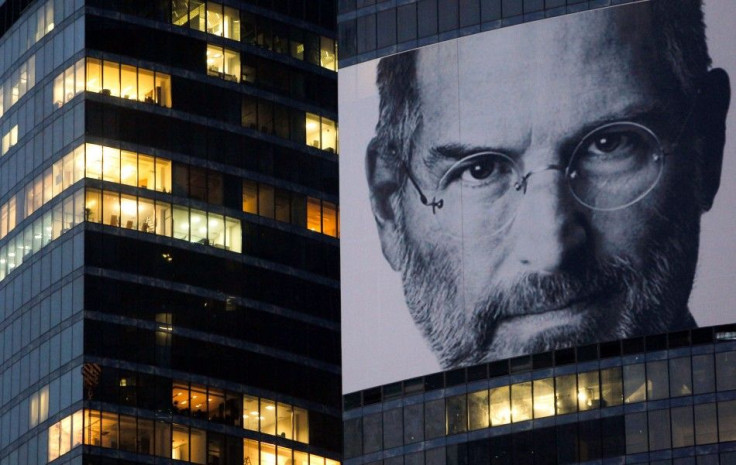Walter Isaacson: Where are the Steve Jobs LSD Experiences?
OPINION

In the past three weeks, I've learned more about Steve Jobs' life than I ever imagined I would. The Jobs' life story binge started with this Playboy profile, worked its way toward this Esquire article and this Rolling Stone coverage. Then I watched his biographer visit The Daily Show, 60 Minutes, ABC News and Charlie Rose. The story of Steve Jobs is everywhere, and it is nearly impossible to drown out the echoes reverberating across the media landscape since his death.
All this time I've spent learning about Steve Jobs' life is alright, though. Jobs is an inspiring figure and, in many ways, affects my day-to-day life with the products he created. His story is interesting: Being adopted, becoming a phreaker and building a Blue Box with Steve Wozniak, selling the Blue Box units for an ROI of 300 percent ($40 to build, sold for $120) and eventually building a multi-billion dollar company.
But here's the part I don't get: Jobs has consistently alluded to the importance of LSD in his life, but as far as I can tell, none of his biographers or profilers have delved deeply into what his experiences were like. Even Walter Isaacson, whose book I started to read last night, failed to capture the immediate experiences on the drug.
Isaacson paints Jobs' life in broad strokes, with extensive detail about the relationships that he built, but spends very little time on specific scenes, especially in Jobs' early life. The book is easy to read and it's enjoyable, but it bothered me that while I was deeply engaged in the chapters where Jobs was going through a spiritual journey—the impetus for Apple's corporate culture compared to that of Microsoft's—very few specifics are given about Jobs' loss of ego, visualisations or of the things he experienced while under the influence of LSD.
Jobs had said several times that LSD was one of the most important experiences of his life. He can even be heard, in recordings aired on 60 Minutes, talking about the significance that LSD played in his life.
Definitely, taking LSD is one of the most important things in my life, says Jobs in a recording aired on 60 Minutes. Not the most important, but right up there
If dropping acid was such an important part to Jobs' personal development and the way that he viewed the world, why haven't we heard more about any of his trips? Did he forget to describe the details? Had he forgotten what it was like? Was it too profound to put into words?
Isaacson mentions that Jobs frequently dropped acid the back of a friends car and occasionally in open spaces, but he gives very little indication of the personal journey that Jobs went on during his trip.
LSD is an extremely powerful drug (for those that weren't aware) that can cause individuals to hallucinate for up to six hours and have residual effects up to almost 12 hours. If Jobs was regularly dropping acid, there's a lot of time he spent soul-searching, hallucinating and bumbling around that we should know more about. Isaacson does not detail any of the revelations of the drugs, the comedown from the drug or any of other things frequently experienced by users. Surely, there are plenty of people who've experimented with LSD that would want to compare their experience with Steve Jobs'.
Isaacson fleets by the subject of drug use, assuming that readers will except that Jobs was a counter-culture kid by describing the fact that he'd smoked marijuana and dropped acid without giving specific details about what his relationship with those drugs was like.
Jobs was a private man, and it make sense that such personal information wouldn't be regularly available, but for Isaacson, a man that was hired specifically by Jobs to be the preeminent source on his story, to omit such important details from the biography seems inexcusable.
I've heard enough about Steve Jobs' business successes: We were all there when they happened. We've all seen the and one more thing speech, we've seen the 1984 commercial, Jobs' Stanford graduation speech and even his announcement of the iPad. What I haven't seen or heard, and likely never will, is what Jobs felt like when he was on LSD—the things that made him try it again and again—and why eventually stopped taking the drug.
For Jobs to describe LSD as one of the most important things that's ever happened in his life, and for none of his biographers or profilers to develop his relationship with drugs seems, to me like an egregious misunderstanding of what's important. Possibly the most important turning point in this man's life will never be fully understood. And that may be, for a man so private, just how he wanted it.
© Copyright IBTimes 2024. All rights reserved.











